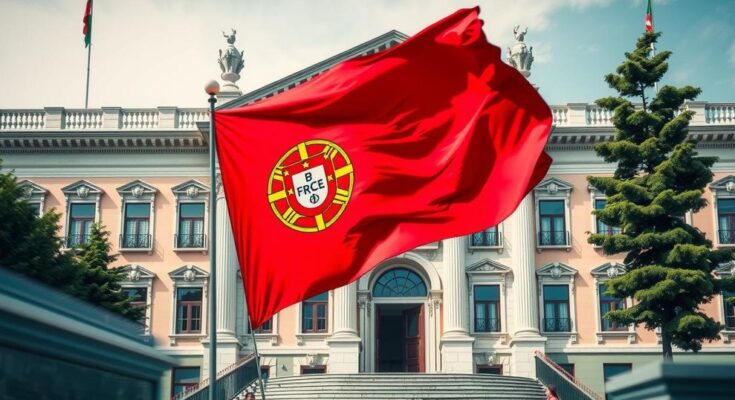Portugal’s government has lost a confidence vote, potentially leading to its third general election in three years. Prime Minister Luis Montenegro’s attempts to avoid snap elections were unsuccessful, with allegations of misconduct swirling around his consultative firm. Voter dissatisfaction and political instability persist, posing challenges for future governance.
Portugal’s government has recently lost a confidence vote in parliament, marking a potential lead-up to the nation’s third general election in a span of three years. Prime Minister Luis Montenegro expressed regret, stating that the government had exhausted all efforts to prevent early elections.
In the vote, lawmakers decided 142-88 against the confidence motion submitted by Montenegro after concerns arose regarding his connections to a consultancy firm which is currently operated by his sons. Portuguese media reported that the firm was engaged in contracts with several private companies that hold government contracts.
Montenegro has survived two previous censure votes and maintains his innocence regarding any allegations. He firmly denied any wrongdoing, claiming that the allegations suggest a harmful mix of personal and political interests.
The leader of the Socialist Party, Pedro Nuno Santos, criticized the government’s tactics as deceitful, asserting that it resorted to manipulative strategies to secure its position. Notably, Montenegro became prime minister following the resignation of his predecessor, Antonio Costa, amid a corruption investigation.
The power dynamic now seems to be shifting. Portugal’s President, Marcelo Rebelo de Sousa, is scheduled to consult with various political parties regarding the potential for an upcoming parliamentary election, possibly scheduled for mid-May.
Montenegro’s political party, the Democratic Alliance (AD), currently holds a minority with only 80 seats in the 230-seat legislature, while the Socialist Party has 78 seats. The hard-right Chega party has gained substantial influence, securing 50 seats in the legislature. Montenegro has ruled out collaboration with Chega, insisting on maintaining his party’s integrity.
Political analysts predict that any future elections are unlikely to produce a decisive outcome, as current polling indicates no significant change in voter preferences. Notably, a collaborative agreement between competing parties might be necessary to ensure political stability. This vote highlights an era of significant political turbulence, reminiscent of the instability that followed Portugal’s shift to democracy post-1974. Many citizens are expressing disappointment over frequent elections, viewing the situation as irresponsible.
In summary, Portugal’s recent parliamentary confidence vote has catalyzed discussions of potential elections, underscoring the nation’s political instability and dissatisfaction among voters. Prime Minister Luis Montenegro’s attempts to maintain governance amid allegations of misconduct have proven unfruitful, leading to widespread concern about governance and potential early elections. The power dynamics among political factions remain delicate, as disillusionment with frequent elections grows among the populace.
Original Source: www.aljazeera.com




